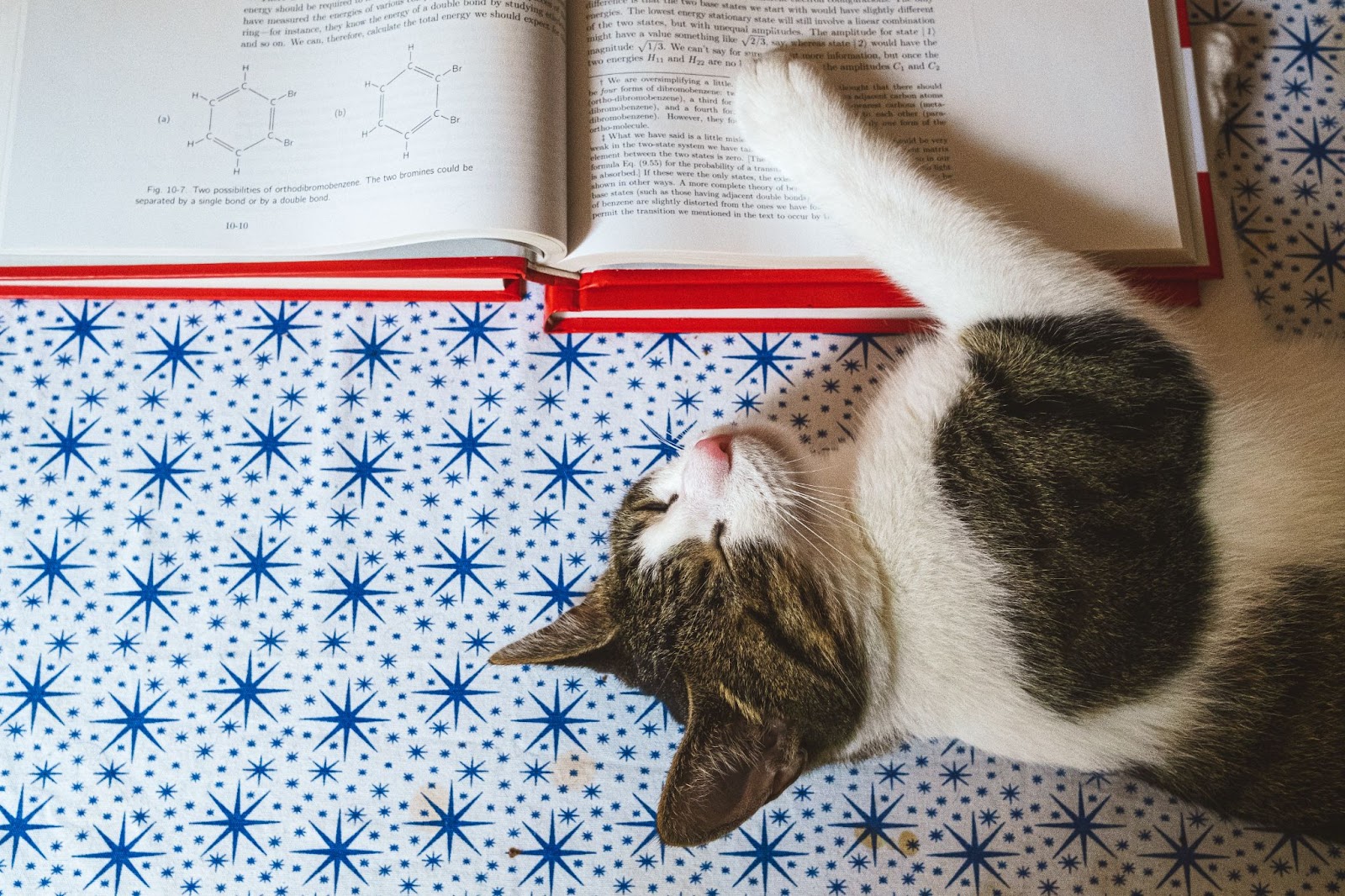Note: We recommend consulting a physician if you are facing issues related to ADHD so that you can be advised for your own individual situation. The accommodations and recommendations mentioned in this article are reflective of Khadja’s individual experience, and she followed university procedures in order to be granted the accommodations appropriate for her. Learn more about the procedures for being approved for accommodations or visit the Academic Success Centre in 1-80 SUB.
I was diagnosed with ADHD during the pandemic, like a lot of people. I got help and found what medication works for me along with accommodations for online exams. I wrote an article on how to go about doing that too. But something I wasn’t expecting was the ballgame that in-person learning has turned out to be.
I have not one athletic bone in my body, people.
So here is an account of all the issues I have run into. For some, I have figured out solutions. For others, I’m open to suggestions.
Follow the Serotonin
It is hard to motivate yourself to get to class every single day. This is unfortunate but true for my brain. I need to inject myself with serotonin to leave the house. We no longer have recordings of lectures. If I miss a class, my anxiety just builds. The uncertainty causes panic. And then I feel like I am doing badly.
What if you’re optimistic like me and you schedule a morning class?
We fake it. Okay not exactly. Here is what I do:
- Plan the night before: Pick out an outfit you want to wear. Pack your food/snack. This will reduce the decisions that you have to make in the morning.
- Find something to look forward to. For me, that is going to the gym or planning lunch with a friend.
- Sleep as early as possible. I find following my REM cycle helps. I feel more rested when I sleep in sessions of 90 minutes at a time. It helps memory consolidation and improves focus the next day.
Distractions in Class
Pre-pandemic, I could not sit through a single class. Even as I write this article, I have a tiny window of my favourite show playing. I do not know why I need something going in the background, but it helps.
Unlike online lectures, I cannot pause my professor while I am distracted by my phone to make a note.
What helped with this was to sit at the front (I feel weird being on my phone when my professor is right there). I make notes by hand. I recommend using Notability if you like to write notes and it has the option to record lectures too. Recording lectures is allowed after getting permission from a professor. Your class syllabus usually contains information about policies around recording class material.
As well, the stress that this lecture will not be available to watch later helps. I try to write whatever I understand in the most summarised way possible. Imagine you are writing notes for someone else; that helps a lot!
Lifestyle Changes that Helped
People assume it is the medication that will completely change how you focus and your life will magically improve. The annoying part is that it is a lifestyle that makes the medication work and helps with ADHD symptoms.
Every single day this semester I have been trying to eat a protein-heavy meal. I take my medication right away, and before it’s started working, I have already eaten a decent amount of food.
This works two ways:
- I feel more awake and ready to start the day because my first task is out of the way (feeding myself).
- The medication goes through my system slower because of food, and I am able to get through my mornings.
I also do not drink coffee right away. Coffee does not work well with most stimulant medications. It can make worse any side effects that you may have through medication. For Adderall, that could be nausea, anxiety or dry mouth. I find it makes me jittery (even though I take anxiety medication).
Weight lifting helps. Or any exercise really. For me, the biggest change and improvement in my focus and overall mood was because I was working out at least four times a week. I know because I haven’t been to the gym in a week and I had my first depressive episode yesterday. It could be a combination of burnout and other things, but most of my other lifestyle changes have stayed constant.
Get enough sleep. For anyone with stimulant medication, sleep is a tricky part (based on talking to friends and family who take them too). Taking medication early enough in the day so it is out of your system by bedtime, and avoiding caffeine near bedtime became essential for me. For example, I noticed even if I had some green tea close to bedtime and was able to sleep, I would not feel rested.
Accommodations
If you struggle with the same issues as me, I have found that there is a lot of help available.
- You can record your in-person lectures. For this, you need permission from your professor or an approved accommodation from the Academic Success Centre. Some professors will send you a form to sign, and if you have accommodations, your professor will have access to the Standard Letter of Accommodation with the Academic Success Center.
- The Glean note-taking app. This is available through the Academic Success Centre as an approved accommodation and means you can be less anxious in class and then have someone to compare your notes to.
- If you struggle with anxiety, more breaks may be possible to add to your exam times as well, provided that you have medical documentation and receive approval (no guarantees). I got 5 minutes per hour.
Here is the website if you would like to learn more, and the Academic Success Centre is great about setting up appointments to discuss or update accommodations as needed. As my anxiety got worse, I needed breaks during the exam (that had not been part of my accommodations before). Allowing ourselves to get the help we need is the most important thing.
Other strategies:
- Discord is another great resource to come out of the pandemic times. Make friends, and talk to people in class and online. They can help. If there isn’t a discord server for a class, make one!
- For one of my classes, we even made a google doc of group notes that multiple people added to. It comes in handy for content-heavy classes. And we also started a study group!
- Sign up for classes early so you can find the best times and class sizes for your needs (I prefer morning classes that are smaller in size).
- Make friends in class, if you are anything like me, there will be bad mental health days and you will need someone to share their notes or teach you a new concept.
Be creative in looking for what you need, and share it with others. It may be the solution someone else is searching for too.

